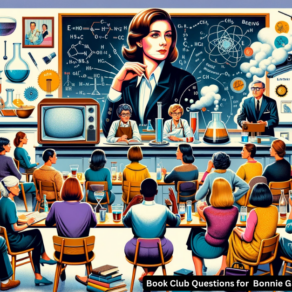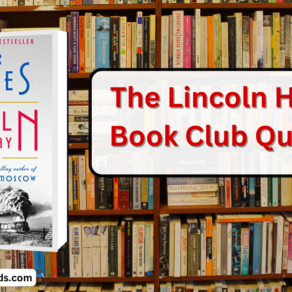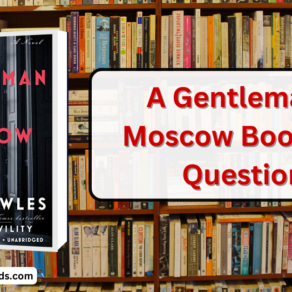After thoroughly enjoying George Orwell’s “Animal Farm” not once, but twice, I found myself captivated by its powerful themes and timeless relevance. This allegorical masterpiece has taught me so much about society, politics, and the human condition that I couldn’t help but share my insights and passion for this novel with all of you.
In a previous blog post titled Animal Farm Summary, I reviewed the intriguing story of “Animal Farm” and analyzed its rich symbolism and narrative depth. Additionally, I curated a collection of my favorite Animal Farm quotes from the novel in another post, showcasing the memorable lines that left a lasting impact on me. Today, I’m excited to bring you yet another post dedicated to this literary classic—this time focused on book club discussion questions.
In this blog post, I will provide a thoughtfully crafted set of book club questions designed to spark engaging and thought-provoking conversations about “Animal Farm.” These questions will delve into the novel’s allegorical nature, the role of language and power, the significance of its characters, and its continued relevance in today’s world.
Whether you’re hosting a book club meeting or simply looking to deepen your understanding of this iconic work, I hope these discussion questions will inspire lively debates and foster a greater appreciation for George Orwell’s timeless wisdom. But first, let me share with you a quick synopsis of the novella.
Animal Farm synopsis
“Animal Farm” is a thought-provoking and satirical novella by George Orwell, published in 1945. Set on a British farm, the story serves as a powerful allegory for the Russian Revolution and the rise of Stalinist totalitarianism.
The novel begins when the animals of Manor Farm, led by the pigs, stage a rebellion against their oppressive human owner, Mr. Jones. With their newfound freedom, the animals establish a self-governed society based on the principles of Animalism, which promotes equality and cooperation among all animals. The Seven Commandments of Animalism are painted on the barn wall to guide their new life.
However, as time passes, the pigs, particularly Napoleon and Snowball, start to consolidate power and manipulate the other animals for their own benefit. They alter the commandments to suit their needs, and eventually, Napoleon drives Snowball out of the farm to become the sole leader. Under Napoleon’s rule, the farm’s initial ideals of equality and freedom are eroded as the pigs grow increasingly corrupt and tyrannical.
The story culminates with the pigs transforming into indistinguishable counterparts of the humans they once despised. Through this allegorical tale, Orwell masterfully explores themes of power, corruption, and betrayal, offering a timeless warning against the dangers of totalitarianism and the importance of vigilance in the face of oppressive regimes.
Animal Farm Book Club Questions
1. How does Orwell use the allegory of animals on a farm to represent the Russian Revolution and its aftermath? What specific characters and events in the novel parallel real-life historical figures and occurrences?
2. What role does language play in the manipulation and control of the animals by the ruling class? How do the pigs use language to shape the animals’ understanding of the world and solidify their power?
3. Explore the theme of power and corruption in “Animal Farm.” How do the pigs gradually become more corrupt, and what are the consequences of this corruption for the other animals?
4. How does the novel illustrate the concept of “divide and rule”? In what ways do the pigs use this tactic to maintain their authority over the other animals?
5. Discuss the significance of the Seven Commandments in the story. How do they evolve and change over time, and what does this reveal about the nature of power and control?
6. In what ways do the animals contribute to their own oppression? How might they have been able to prevent the pigs from gaining total control?
7. What role does education play in the story? How might the outcome have been different if all the animals were educated and literate?
8. How does Orwell use humor and satire to convey his message in “Animal Farm”? What are some examples of these techniques, and how do they contribute to the overall impact of the novel?
9. Analyze the character of Boxer, the hardworking and loyal horse. What does Boxer symbolize, and what is the significance of his ultimate fate?
10. Do you think “Animal Farm” remains relevant in today’s world? In what ways can the novel’s themes and messages be applied to contemporary issues of power, corruption, and inequality?
Feel free to use these questions as a starting point and tailor them to your book club’s specific interests and insights. Enjoy your discussion!







